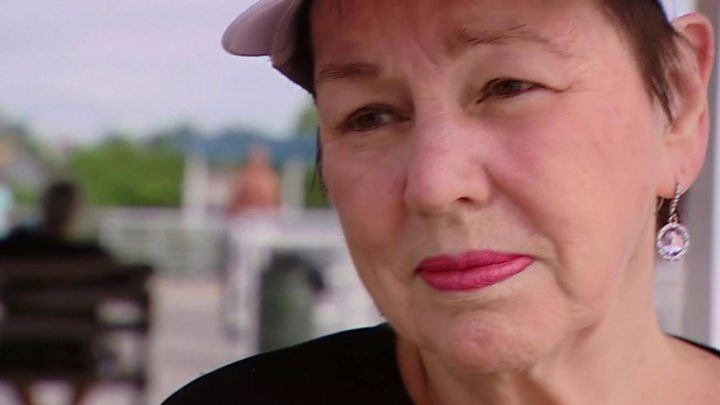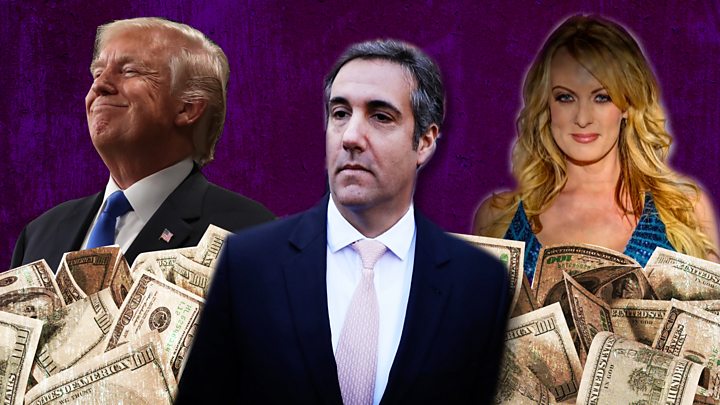Trump insists hush money payments by Cohen were legal
Trump insists hush money payments by Cohen were legal

US President Donald Trump has insisted that payments to two women who say he had affairs with them did not break election campaign rules.
It comes after his ex-lawyer, Michael Cohen, pleaded guilty to violating laws during the 2016 presidential election over his handling of the hush money.
Interviewed by Fox & Friends, Mr Trump said the payments had come from him personally, not from the campaign.
He has in the past denied knowing about one of the payments altogether.
Mr Trump also accused Cohen of making up stories to receive a lighter sentence.
What did Trump say exactly?
In an excerpt from the Fox & Friends interview, which will be aired in full on Thursday, Mr Trump responded to questions about the hush payments by insisting that they were "not a campaign violation".
"They came from me," he said. "And I tweeted about it. But they did not come out of the campaign."
He added that he had only found out about the payments "later on".
His comments contradict a statement made earlier by Cohen under oath in which he said the president had instructed him to make the payments.

In July, Cohen released audio tapes of him and Mr Trump allegedly discussing one of the payments before the election.
So did the payments break campaign rules?
Cohen, who was Mr Trump's personal lawyer for more than a decade, admitted passing on funds to two women thought to be porn star Stormy Daniels and former Playboy model Karen McDougal.
The hush money payments were not reported to the Federal Election Commission during the campaign.
The question is whether the payments were made to protect Mr Trump's personal reputation or to protect his image as a presidential candidate.
Under US election rules, any payments made with the aim of influencing a vote must be reported.

For more on this story:
- Why Trump's opponents are holding off on impeachment
- Trumpland's crazy Tuesday, blow by blow
- Trump's chances of weathering the storm

Cohen acknowledged in court that the aim was indeed to protect Mr Trump's candidacy, saying he had paid the money "at the direction" of Mr Trump "for the principal purpose of influencing the election".
If Mr Trump were to be prosecuted over the money - not through the normal courts, because he is the sitting president, but conceivably in Congress, through an impeachment process - investigators would have to prove that he had indeed given the money to Cohen for electoral reasons.
How has Trump contradicted himself?
In his first public comments, back in April, about his alleged affair with Stormy Daniels, Mr Trump denied knowing about the $130,000 (£100,000) payment made to the actress via Cohen.
Ms Daniels, whose real name is Stephanie Clifford, alleges that she and Mr Trump had sex in a hotel room in 2006.
Asked by a reporter in the press cabin of Air Force One if he had any knowledge about where Cohen had got the money to pay Ms Daniels, the president responded at the time: "I don't know."
The following month, Mr Trump officially disclosed a payment to Cohen of between $100,001 and $250,000 for expenses incurred in 2016.
What happens next?
Any action against Mr Trump is unlikely until after the mid-term elections on 6 November, when the opposition Democrats will seek to break the grip of Mr Trump's Republican Party on Congress.
In the meantime, Cohen may agree to testify to the inquiry into alleged collusion between the Trump campaign and Russia.
There is no confirmation that Cohen will speak to Robert Mueller's inquiry but his personal lawyer has said his client is happy to talk.
Comments
Post a Comment